 Japan is poised to dispatch a military aircraft to deliver earthquake relief supplies to China, a mission that would be a dramatic demonstration of deepening ties between the two Asian powers.No aircraft operated by Japan’s Air Self Defence Force-the name of the officially pacifist nation’s five-decade-old airforce-has ever visited China, where memories of Tokyo’s 1931-45 invasion and occupation still run deep.“The Chinese government, through diplomatic channels, did request...rescue materials, tents and medical gear, and wondered if it would be possible to send them by aircraft of the Air Self Defence Force,” Tomohiko Taniguchi, a Japanese foreign ministry spokesman, said on Wednesday.Japanese officials said Tokyo was leaning heavily towards meeting a request that marked a “sea change” in Chinese attitudes.Less than two weeks ago, when Japan sent rescue workers to search for victims of the earthquake that devastated areas of southwestern China this month, they flew by commercial aircraft via Beijing.At the time, Osamu Sakashita, deputy cabinet secretary, described as “too sensitive” the suggestion that Japan could send them directly to the disaster area in military aircraft.Analysts said use of a military aircraft would help to improve Japan’s image among ordinary Chinese and could help to build trust between the two nations’ militaries.“It has great symbolic meaning,” said Shi Yinhong, professor of international politics at Beijing’s Renmin University, adding that the mission would be possible in part because of the diplomatic warmth created by a visit this month to Japan by Hu Jintao, China’s president.Chinese media have also given appreciative coverage to the efforts of the Japanese earthquake teams, the first foreign rescuers allowed into the country after Beijing dropped initial reluctance to accept such assistance.Many Chinese were particularly touched by a widely published news photograph of a rescue team bowing in silent prayer to a corpse they had retrieved from the rubble.One Japanese official suggested that popular reaction had helped change the diplomatic context, making a military role in aid delivery possible. However, in spite of the striking improvement in ties since an ice-breaking visit to Beijing by then-Japanese prime minister Shinzo Abe in October 2006, many in China still recoil at the idea of even an ASDF aid mission. A news report of the possible arrival of Japanese aircraft posted on a website run by the Chinese Communist party’s Global Times newspaper prompted far more critical than supportive comments.“Emotionally, I can’t accept the arrival of the Self Defence Force,” wrote one contributor. “Yesterday their planes were dropping bombs, today they are giving a little kindness to confuse the Chinese people,” added another.Such sensitivities have complicated plans for naval exchanges. While a Chinese warship made a historic port visit to Japan last November, a reciprocal voyage by a Japanese naval vessel has yet to take place.One Chinese analyst said that at least some members of China’s People’s Liberation Army, reared on tales of stout resistance to Japanese invaders, would also find an ASDF presence “not pleasant”.“But they will have to accept it,” the analyst said. “I don’t they will be able to say anything negative.”
Japan is poised to dispatch a military aircraft to deliver earthquake relief supplies to China, a mission that would be a dramatic demonstration of deepening ties between the two Asian powers.No aircraft operated by Japan’s Air Self Defence Force-the name of the officially pacifist nation’s five-decade-old airforce-has ever visited China, where memories of Tokyo’s 1931-45 invasion and occupation still run deep.“The Chinese government, through diplomatic channels, did request...rescue materials, tents and medical gear, and wondered if it would be possible to send them by aircraft of the Air Self Defence Force,” Tomohiko Taniguchi, a Japanese foreign ministry spokesman, said on Wednesday.Japanese officials said Tokyo was leaning heavily towards meeting a request that marked a “sea change” in Chinese attitudes.Less than two weeks ago, when Japan sent rescue workers to search for victims of the earthquake that devastated areas of southwestern China this month, they flew by commercial aircraft via Beijing.At the time, Osamu Sakashita, deputy cabinet secretary, described as “too sensitive” the suggestion that Japan could send them directly to the disaster area in military aircraft.Analysts said use of a military aircraft would help to improve Japan’s image among ordinary Chinese and could help to build trust between the two nations’ militaries.“It has great symbolic meaning,” said Shi Yinhong, professor of international politics at Beijing’s Renmin University, adding that the mission would be possible in part because of the diplomatic warmth created by a visit this month to Japan by Hu Jintao, China’s president.Chinese media have also given appreciative coverage to the efforts of the Japanese earthquake teams, the first foreign rescuers allowed into the country after Beijing dropped initial reluctance to accept such assistance.Many Chinese were particularly touched by a widely published news photograph of a rescue team bowing in silent prayer to a corpse they had retrieved from the rubble.One Japanese official suggested that popular reaction had helped change the diplomatic context, making a military role in aid delivery possible. However, in spite of the striking improvement in ties since an ice-breaking visit to Beijing by then-Japanese prime minister Shinzo Abe in October 2006, many in China still recoil at the idea of even an ASDF aid mission. A news report of the possible arrival of Japanese aircraft posted on a website run by the Chinese Communist party’s Global Times newspaper prompted far more critical than supportive comments.“Emotionally, I can’t accept the arrival of the Self Defence Force,” wrote one contributor. “Yesterday their planes were dropping bombs, today they are giving a little kindness to confuse the Chinese people,” added another.Such sensitivities have complicated plans for naval exchanges. While a Chinese warship made a historic port visit to Japan last November, a reciprocal voyage by a Japanese naval vessel has yet to take place.One Chinese analyst said that at least some members of China’s People’s Liberation Army, reared on tales of stout resistance to Japanese invaders, would also find an ASDF presence “not pleasant”.“But they will have to accept it,” the analyst said. “I don’t they will be able to say anything negative.”●China and Taiwan took a step towards warmer ties on Wednesday as their leaders said semi-official dialogue, suspended since 1999, should be resumed as soon as possible, reports Kathrin Hille from Taipei.
The talks between Hu Jintao, China’s president, and Wu Poh-hsiung, chairman of Taiwan’s Kuomintang party, reflect improved relations since the KMT’s Ma Ying-jeou won Taiwan’s presidential election in March.
http://www.ft.com/cms/s/0/23fa5616-2c8d-11dd-88c6-000077b07658.html
As in the days of Noah...

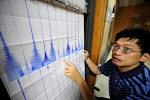

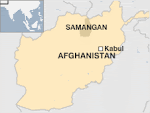







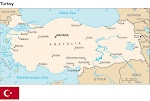
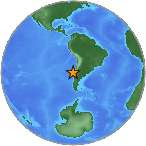




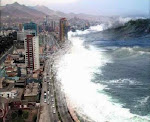

.jpg)


.bmp)
No comments:
Post a Comment